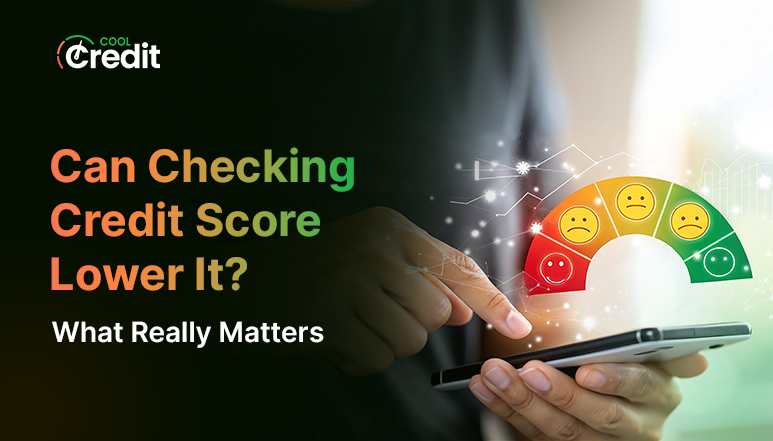
What Credit Score Do You Need to Buy a Car? A Guide [2025]
Quick Answer
What's a Good Credit Score to Buy a Car?
A good credit score to buy a car is typically 661 or higher, since most approved auto loans fall in that range. But that doesn’t mean lower scores block you out. Borrowers with scores in the 500s often still get approved, just at higher interest rates.
You may wonder, what credit score do you need to buy a car? The truth is, there isn’t one fixed number. Every lender looks at credit scores differently. Some approve borrowers with fair credit. Others set the bar higher. A strong score gives you better rates and lower payments. A weaker one doesn’t stop you, but it makes the loan more expensive.
That’s why your credit matters as much as the car you choose. The excitement of buying fades fast when high interest pushes your payment up. Knowing how your score shapes approval, interest, and monthly costs helps you prepare. Before you go out to buy a car, it’s worth understanding the role your credit score plays in the process.
Ready to Drive, But Your Credit’s Holding You Back?
Get StartedWhat Credit Score Do You Need to Buy a Car?
There isn’t one fixed score to get approved for a car loan. Lenders have different standards when they look at your credit score. Most people who finance cars usually have scores of 661 or higher.
Lower scores don’t mean you are completely out of options. If your score is between 501 and 600, you still qualify. And people with scores below 500 also get loans, but the chances are low.
A low score won’t block you, but it will cost more. Your interest rate can be higher, and your payments can be heavier. Lenders charge more because lower credit scores carry higher risk. Higher scores, on the other hand, usually bring lower rates and savings.
The Credit Score Factor: A Deal Maker & Breaker In Car Loan Deals
Your credit score decides the interest rate you’ll pay for a car loan. If you don’t have the highest or lowest score, your rate will fall in between.
Interest rates change with the market, lender rules, and your credit score. You can’t control the market. But you can work on improving your score.
Lenders group borrowers into ranges before deciding what rate to offer.
▪ Very Poor Credit (300–579)
You may struggle to get approved with a score in this range. And if you do, you’ll get the highest rates available. This usually means your report shows missed payments, defaults, or bankruptcies. Borrowers here often pay around 14.4% APR for a car loan.
▪ Fair Credit (580–669)
You’ll get approved more easily, but your rate will still be high. This score often comes from late or missed payments over time. Paying at least the minimum on time helps move you to a better range. Auto loans here average around 7.5% APR.
▪ Good Credit (670–739)
Approval isn’t a problem in this range, and rates start to improve. You won’t get the lowest rate. But you’ll be close. A late payment or high balance can drop you from higher ranges. Borrowers here usually pay around 4.5% APR.
▪ Very Good Credit (740–799)
You’ve built a history of on-time payments and kept balances low. And you’ve managed multiple accounts without any trouble. Rates here are very close to the best available.
▪ Excellent Credit (800–850)
You have a perfect payment history and low credit use. Lenders compete for borrowers like you. And you get the lowest interest rates possible.
How to Buy a Car with Bad Credit?
Having a credit score below 700 can feel like a roadblock. But you can still get approved if you prepare well.
- Bring a Bigger Down Payment
A bigger upfront down payment lowers your monthly payments. And it can help you get a lower interest rate. Lenders may also see you as less risky even if your score is low.
- Bring Documents That Show Stability
Lenders want to know you can make payments without trouble. Bring your recent pay stubs and proof of address. And show how long you’ve worked at your current job. This helps them see you as reliable.
- Consider Your Own Financing
Dealerships offer loans, but they’re not your only option. Check with your bank or credit union. And compare rates online to see better deals. Once you find a good option, get preapproved so the process is easier.
- Be Smart When Rate-Shopping
Applying for a loan means a hard check on your credit. But if you apply to different lenders within a short time, it affects your score less.
- Think About the Future
You might get a higher rate now. But if you make payments on time for 6–12 months, your score can improve. And then you can try to refinance for a better rate.
| Extra Tip: If possible, bring a co-signer with good credit. It can increase your chances of getting approved. |
How to Build Credit Before Buying a Car?
If you can wait a few months, you can improve your credit score. Better credit can help you get a lower rate on your car loan. But if you can’t wait, you can refinance later when your score improves.
Your steps will depend on what’s affecting your credit right now. Check your credit report to see your history and score details. And then start with simple changes that can make a real difference.
1. Pay Your Bills on Time
Payment history is the most valued factor in your credit score. Even one late payment can damage it for a long time. So bring all accounts current and pay at least the minimum each month.
2. Reduce Your Credit Card Balances
High balances increase your credit utilization rate. That’s the percentage of credit you’re using compared to your limit. And a lower utilization rate usually means a better credit score.
3. Keep Your Credit Cards Open
Closing cards reduces your total available credit. This can raise your utilization rate and hurt your score. So keep them open unless they have high fees or cause overspending.
4. Handle Collection Accounts
If you have debts in collections, try to pay or settle them. Updating these accounts can help your score recover faster.
5. Become an Authorized User
Ask your most trusted family member or a friend to add you to their card. Their good payment history will appear on your report too.
6. Check Your Credit Reports for Errors
Mistakes like wrong late payments can lower your score. So dispute them with the credit bureaus and get them corrected.
AI-powered credit repair is just one tap away
Try It YourselfBuild a Good Credit Score to Buy a Car With CoolCredit
When you apply for a car loan, your credit score plays a big role. It decides whether you get a fair interest rate or end up with high monthly payments.
Lenders rely on it to measure risk. A higher score means better car loan terms and lower costs. That’s why preparing your credit before stepping into a dealership can save you thousands.
CoolCredit makes this process simple and effective.
- You get alerts whenever something changes in your credit that could affect approval.
- If errors are holding you back, CoolCredit identifies them. And creates dispute letters so credit bureaus correct them quickly.
Improving your credit isn’t only about fixing mistakes. Building positive history matters just as much. CoolCredit gives you AI-powered tips tailored to raise your score faster. Its Booster Payment Plan reports your on-time payments to credit bureaus, strengthening your credit.
For tougher challenges, Expert Assist connects you directly with professionals who guide you with proven strategies. This helps you build long-term credit health, not just short-term fixes.
Conclusion
Buying a car isn’t only about the model you choose. It’s also about the rate you lock in. And that depends a lot on your credit score. A higher score means lower costs. A lower one? More interest and heavier payments.
That’s why preparing your credit matters. With CoolCredit, you can track changes, fix errors, and boost credit. Do that first, and your car loan becomes a lot more affordable.
FAQs
Q: Is 650 a Good Credit Score to Purchase a Car?
A: Yes, you can get approved with a 650 score. But expect higher interest rates compared to borrowers with better credit.
Q: What Is a Good Credit Score for a Car Loan If I Want the Lowest Interest Rates Possible?
A: You’ll need a score of 740 or higher. This range helps you secure the best loan terms and lowest interest rates.
Q: Can You Buy a Car With a Credit Score Below 600?
A: Yes, you still can. But your loan will likely have very high interest and stricter terms.
Q: Does a Bigger Down Payment Help If I Don’t Have a Good Credit Score?
A: Yes, it lowers your monthly payments. It also makes lenders more willing to approve you.
Q: Can Refinancing Help If My Credit Score Improves Later?
A: Yes, refinancing can replace your high-rate loan. You’ll save money once your score goes up.







